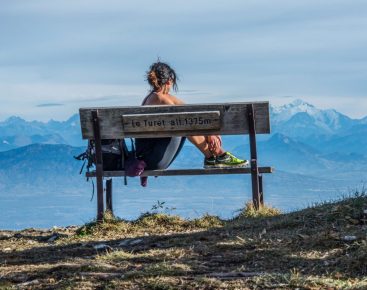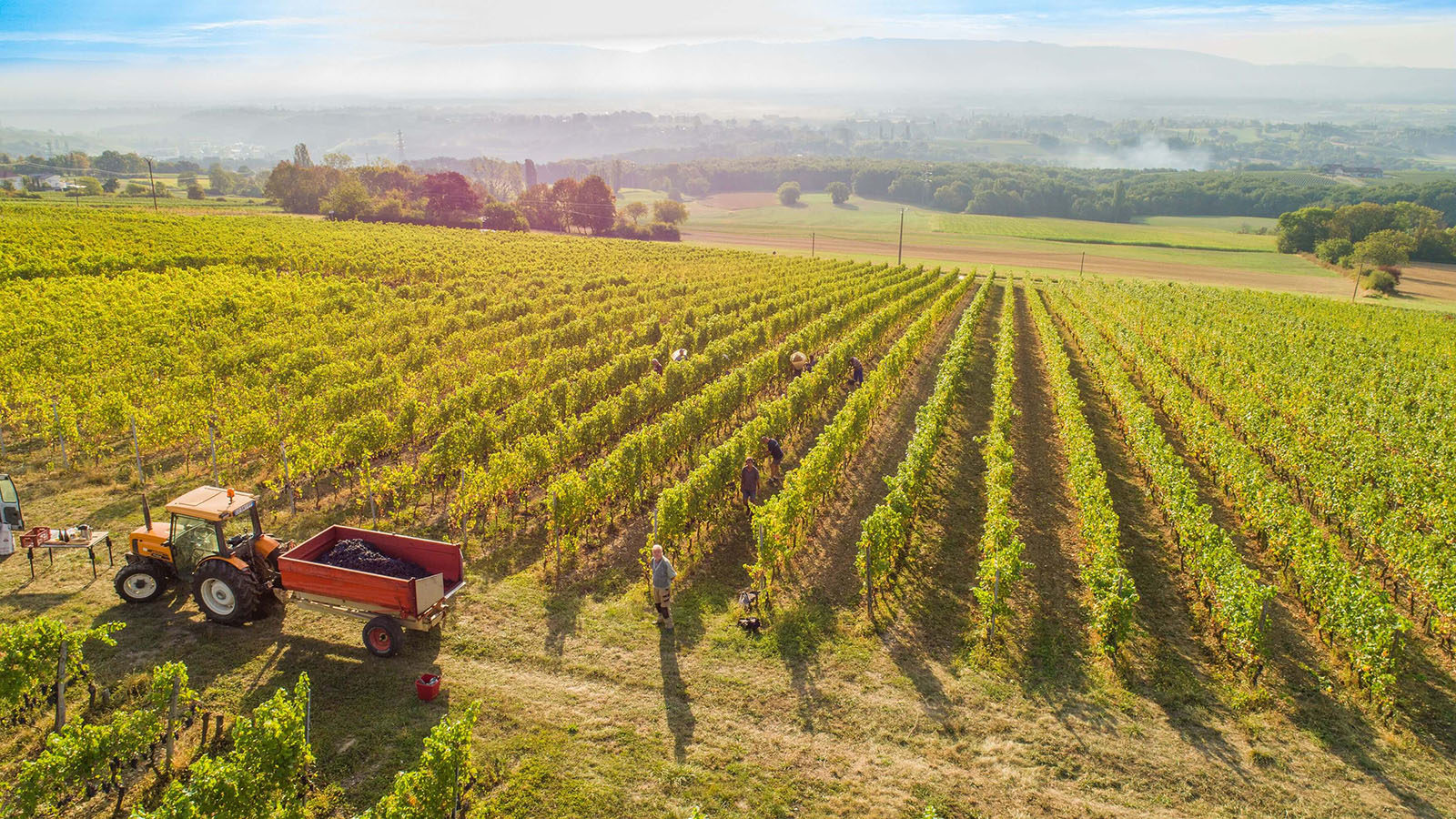Culture & Gastronomy Published on 10/09/2024
Enjoy a glass of wine!
If you can’t walk through the vineyards and see them bud, how about a glass of wine? Then follow me! We are going with Frédéric to discover the Domaine de Mucelle in Challex, the last wine-producing village in the Pays de Gex.
Frédéric Péricard, who has been running the estate since 2000, is originally from the Loire region. But for 40 years now, he has been an adopted Gessian. How did he get from his native Loire to the small village of Challex, on the borders of the Ain? His answer: “Through an internship, of course! In 1980, I did an internship at the Domaine de Mucelle. And I stayed there, quite simply. No wine tradition in the family, but the passion, first of the vine and then of the wine, has always been with him.

A bit of history
If today, the totality of the production is produced on the farm, it has not always been so. Indeed, after the war and during several decades, the winegrowers of the village and the surroundings brought the grapes down to the cooperative cellar of Satigny (in Switzerland), which became Cave de Genève in 1994. The year 2000 marks the definitive end of this tradition for the domain of Mucelle, because the operation is no longer profitable and a need for a more centralized approach is needed.
For all tastes…
If today, the totality of the production is produced on the farm, it has not always been so. Indeed, after the war and during several decades, the winegrowers of the village and the surroundings brought the grapes down to the cooperative cellar of Satigny (in Switzerland), which became Cave de Genève in 1994. The year 2000 marks the definitive end of this tradition for the domain of Mucelle, because the operation is no longer profitable and a need for a more centralized approach is needed.
…but always with respect for nature
To produce the wine, and to take care of the estate with him, Frédéric employs one person permanently. But in spring and autumn, the farm is in turmoil! From April to May, 5 additional people join them for the disbudding. And in the fall, 15 to 20 pairs of hands work for several weeks for the harvest. Disbudding ? Warning to the most novice among us! This nice word simply means that we remove the undesirable shoots, harmful to the rest of the vine, or those that will not produce.
This technique is done by hand, with respect for the plant, in line with the organic impulse given to the farm by Frédéric since 2000. What triggered him? None, “I’ve always been an environmentalist at heart” he answers. Since 2012, the wines are certified organic, and the regular audits honor the efforts made by Frederic, year after year. And he doesn’t stop at wine. Part of the estate’s land, previously grazed by cows, is now used to grow cereals, which are also certified organic: sunflower, rapeseed, wheat and buckwheat are transformed into organic oil and flour. The vine is not left out, since in order to preserve it from diseases, it is “pampered” with Bach flowers and essential oils. What we would’nt give up to be in its place!
When are we going?
Your palette and senses are awakened? Then you are ready! Open houses of the domain are organized several times a year. The vines even sometimes resonate with a jazz concert. You want more? Take an organized tour of the vineyard and the cellar, for a group of up to 50 people. Bonus: a tasting of the wine portfolio can conclude this visit… so as soon as you can come, don’t wait!
Did you know that?
The first mentions of vines in Challex date back to the year 1000. Yes, a thousand years of wine tradition in Challex! Or rather Chaloiy, Chalosium, Challoes, Chalais, Chalex, the definitive spelling having been established only in 1793. Even if today the work of the vine is rarefied, Challex remains proud of this tradition, which can be seen on its coat of arms with a pampre (vine branch decorated with leaves). Moreover, the choice to call the domain Mucelle is not by chance, it is the name of one of the hamlets of the village…
For more information: website of the domain of Mucelle, of the town hall of Challex, and history of the Cave de Genève.





